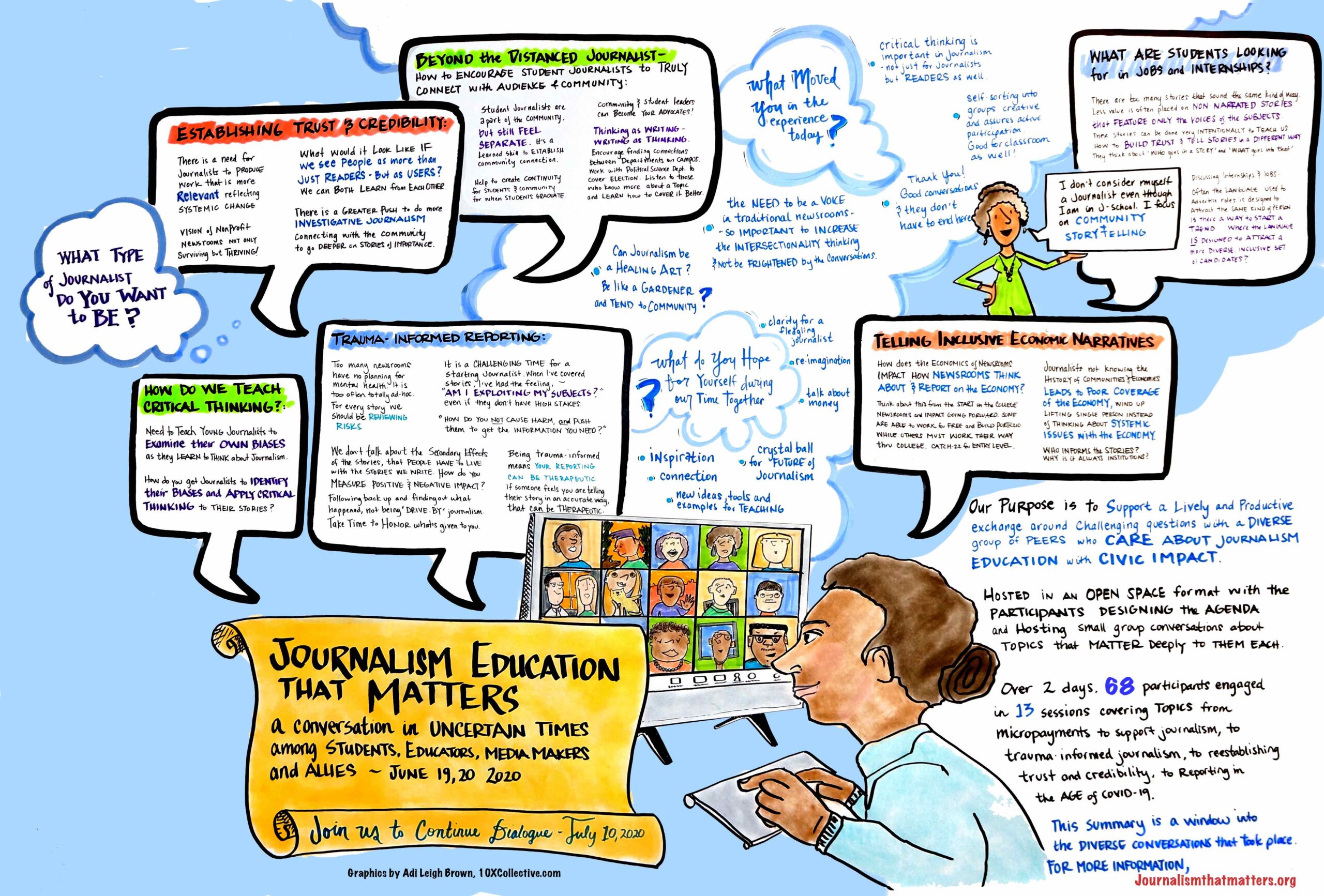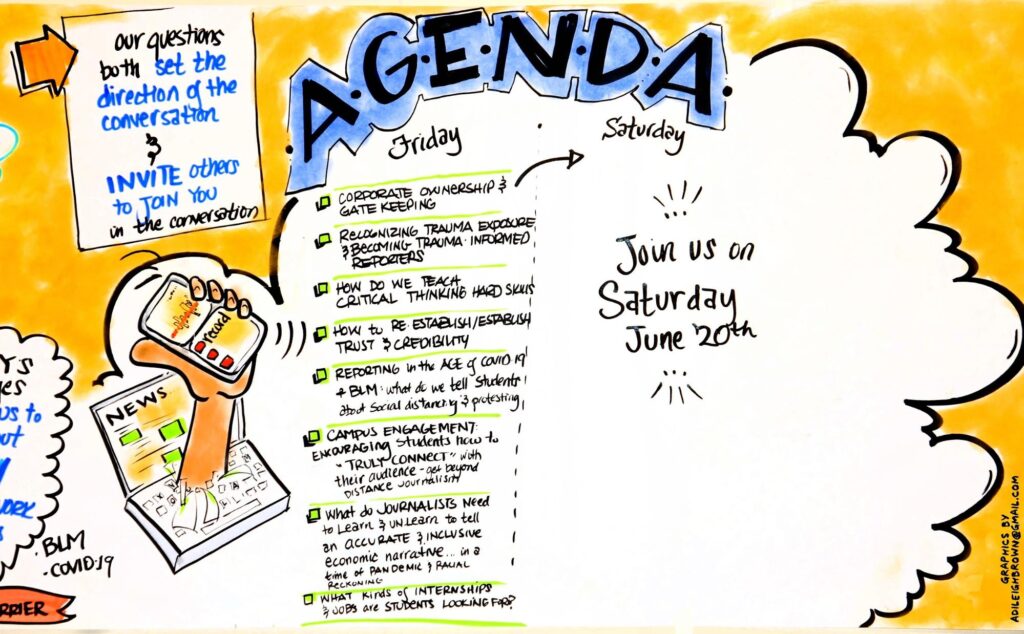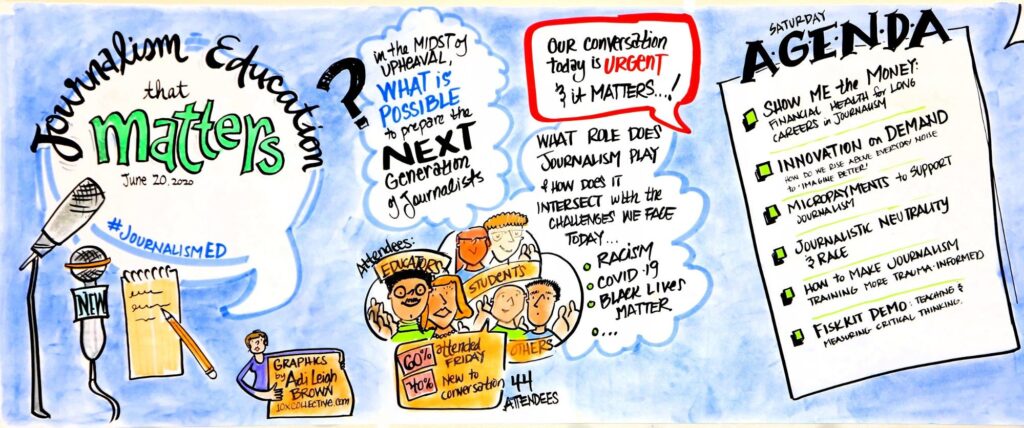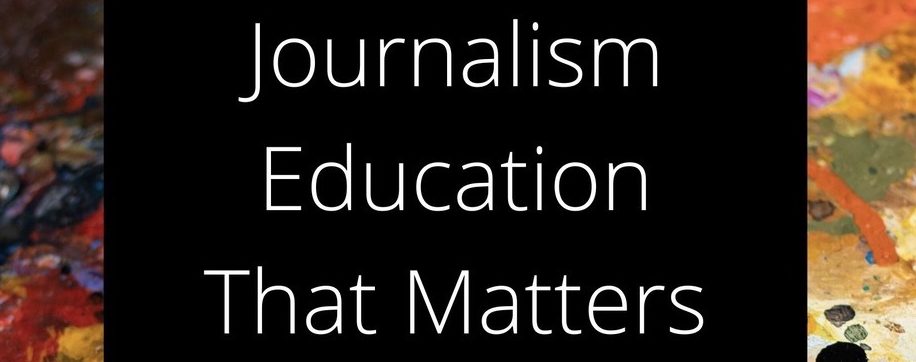
Graphics by Adi Leigh Brown, 10XCollective.com
June 19th – Setting the Stage
Fifty educators, students, media professionals and their allies self-organized into conversations about journalism education that matters.

Check out the notes. Breakout group discussion topics contained in the notes:
| Topics/Questions |
|---|
| How to help journalists recognize traumatic exposure on themselves and those they report on i.e. become more trauma-informed |
| How do we teach critical thinking “hard skills? |
| How to re-establish trust/credibility |
| Reporting in the age of COVID-19 and BLM: What do we tell students about social distancing, covering and attending protests |
| Campus engagement: How to encourage our student journalists to truly connect with the audience – or any small community connection. Beyond the “distanced” journalist. |
| What do journalists need to learn and unlearn to tell an accurate and inclusive economic narrative as cities seek to rebuild local economies in a time of pandemic and racial reckoning? |
| What kinds of internships and jobs are students looking for? What makes a position or an organization an attractive prospect? |
June 20th – Exploring Possibilities
The conversation continued among 45 educators, students, media professionals, and allies. The notes are here. Small group discussion topics are listed below.

| Topics/Questions |
|---|
| Innovation on Demand: How can we rise above everyday noise to “imagine better?” |
| Show me the money: How can we teach early career and student journalists to make money, and have financial health that helps them have long careers and diversifies our industry? |
| Micropayments to support journalism |
| Journalistic neutrality and race: How do ideas of neutrality and objectivity in journalism need to change in light of BLM protests? How can I remain neutral as a black reporter? |
| How to make journalism training more trauma-informed? |
| Fiskkit Demo, Case Study: Free tool for teaching and measuring critical thinking, asynchronously |
July 10 – What’s Possible Now?
Three weeks after our exploration, 27 educators, students, media professionals and allies came together to explore possible actions for preparing the next generation of journalists. The notes are here. The ideas they considered are below.

TOPIC/QUESTION
Innovating with Media Collaboratives
How do we leverage the growing number of media collaboratives to help journalists of the future through more effective partnerships with journalism educators?
Keeping Students Motivated/Engaged
How do we keep ALL students motivated and engaged through online or hybrid education despite technological, mental health/mood and practical challenges?
Can we create an education structure to have students building new communication initiatives in an apprenticeship model rather than bachelor’s degree model?
Just-in-time education and coaching directly to a cohort of students distributed geographically? Building in 1:1.
